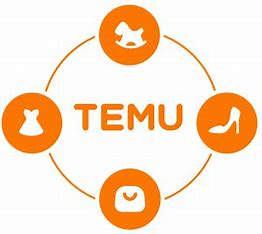Amid pressure from local industry and retailers, Temu applies for tax-exemption certification
05/16/2024

As the industry and retailers increase pressure to bring the issue of ending import tax exemptions for foreign websites to the forefront in the Lower House, a new global player is poised to enter the Brazilian market. Sources say that Temu, part of the Chinese mega-group Pinduoduo and a direct competitor to Alibaba, has submitted a certification request to the Federal Revenue Service for the Remessa Conforme program— which establishes a set of rules for the advanced customs clearance of products in exchange for an exemption from import taxes for shipments up to $50.
The certification was submitted through Elementary Innovation Pte, a subsidiary of Pinduoduo (PDD) based in Singapore. The carrier expected to operate with Temu, according to Brazil’s Revenue Service records, will be J&T Express Brazil, although negotiations with other logistics operators are ongoing.
If approved, the company will be allowed to send deliveries under $50 to the country without paying the 60% import tax. Only the 17% sales tax ICMS tax will be mandatory for local buyers. To comply, it will have to follow rules such as the prior submission of purchase and consumer data.
Temu declined to comment. The company’s application was submitted in March and could take several months to process—on average, recent requests have taken between 60 to 120 days for approval, but there is no official deadline for the review.
To expedite the project’s implementation, Temu representatives have been contacting Brazilian technology companies to establish agreements that will accelerate the integration of systems in China and with its local platform to be created.
Before making a final decision, the company sought a clearer definition of the Remessa Conforme program to verify its progress and the actual requirements for compliance. Currently operating in about 50 countries, Temu has emphasized the need to expand operations in emerging markets.
Market speculation suggests that Temu is well-positioned to disrupt established foreign platforms that already have a loyal customer base in Brazil and to innovate with advanced language capabilities.
Santander published a report suggesting that traditional sector companies, such as Mercado Libre, Shopee, and Magazine Luiza, could feel a greater impact from Temu’s entry.
Temu extensively utilizes game-like approaches and layouts, offering games that allow users to earn more discounts and support frequent customer check-ins to gather data on profiles and habits.
Given the perception that Temu will invest heavily to gain market share, competition for sales is expected to intensify in Brazil. This comes at a time when national and Asian companies have been adopting more rational and conservative strategies to protect returns.
Globally, Temu is known for selling a wide range of products at low prices (“shop like a billionaire” is the campaign slogan) and has faced criticism from governments in Europe and the U.S. over alleged imports of counterfeit products and the use of labor under poor conditions, allegations it denies.
A hybrid of Shopee and Shein, Temu was created in 2022 by Pinduoduo, a company with a market capitalization of $192 billion on Nasdaq. Among Chinese digital groups, Pinduoduo is almost on par with leader Alibaba ($193.5 billion in market cap).
While the Temu app can already be downloaded in Brazil, purchases are not yet possible—there have been over 3 million app reviews so far.
Temu’s likely entry comes at a time when local stores and industries are pushing for the return of import tariffs. On Tuesday, industry associations, commerce groups, and union leaders published a manifesto in the media criticizing the lack of tax equality between foreign online marketplaces and national companies.
Also on Tuesday, they held a press conference to increase pressure on the issue. They advocated for the approval of a report by Congressman Átila Lira that ends the import tax exemption for shipments up to $50. The issue is part of the Green Mobility and Innovation (Mover) program bill, but the Workers’ Party opposes it.
“What is the logic of granting a tax waiver to those who do not generate any jobs in Brazil?” questioned Sérgio Zimerman, CEO of Petz. “Just one individual sender shipped 16 million parcels to Brazil. This is mockery. We have been ridiculed by the platforms,” he said.
Businessman Flávio Rocha, from Riachuelo, stated that a piece sold in the chain’s stores “contains an absurd 45% tax, but enters through the borders, when applicable, with a 17% state tax,” he said.
The meeting was organized by the Parliamentary Front for Entrepreneurship (FPE), which has been pressuring the government to end the exemption since last year.
Initially, the Lula administration adopted the measure but backed down amid negative social media backlash and a drop in popularity. The Federal Revenue Service created Remessa Conforme in 2023 to organize the flow and study taxation, with support from the Ministry of Finance, but the exemption has been maintained so far.
In response, business leaders mobilized in Congress alongside Lower House Speaker Arthur Lira to approve the end of the exemption within a bill by the legislator and rapporteur Átila Lira. However, the Workers’ Party and the presidential office opposed the approval, creating an impasse last week, and the bill did not advance.
“Congress works under pressure, popular pressure, and sector pressure,” said the congressman. “We know that part of the government supports this matter, but part does not and does not want to address it. We need a fair text.” The rapporteur said he is open to negotiation but awaits a proposal from the government leader in the Lower House, Congressman José Guimarães.
*Por Rafael Rosas — Rio de Janeiro
Source: Valor International
